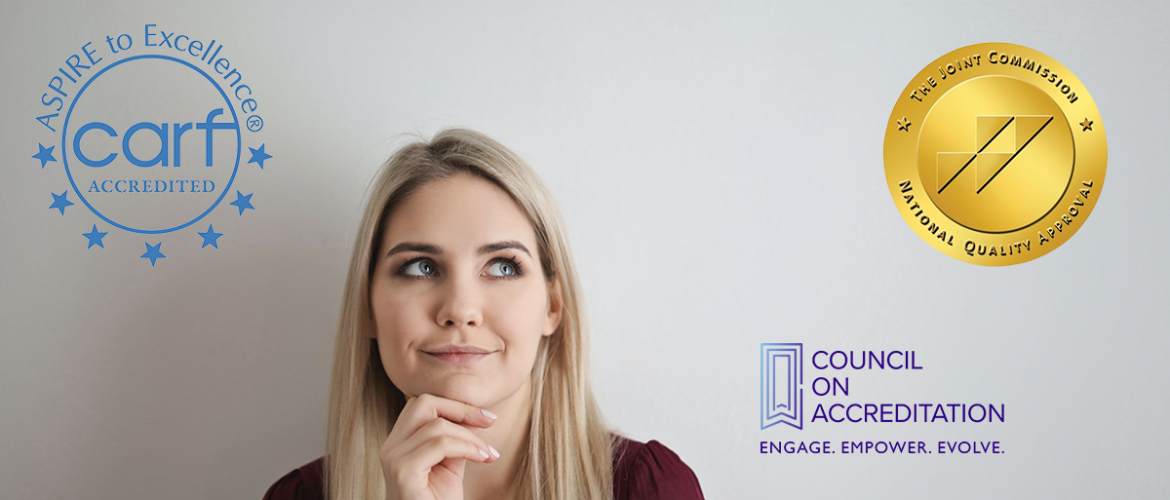If you’re looking to find the best treatment facility for yourself or for a loved one you should always take into account the facility’s accreditation status. Throughout the United States there are different governmental agencies, state by state, that provide licensure to behavioral health centers that specialize in substance abuse treatment and most do not require third party accreditation. Insurance providers, however, may not reimburse treatment centers for patient care unless they possess third party accreditation and this trend is increasing. So what are third-party accreditation bodies that oversee behavioral health programs? Organizations such as the Joint Commission, CARF International and the Council on Accreditation are composed of medical and clinical professionals such as doctors, nurses, psychologists, therapists, administrators and allied health professionals that set standards for the practice of delivering high quality behavioral health in a wide variety of environments. Typically speaking treatment facilities much certify once every three years and the process of achieving accreditation from these organizations is rigorous.
Treatment programs seeking accreditation must purchase a “Standards” manual, typically as thick as a dictionary. These manuals describe the policies and procedures that treatment centers must adhere to in order to pass. Some treatment facilities may take months to a year to bring their policies and procedures up to par and once they are ready, they can schedule a survey. That’s when the accreditation body will send out a group of medical and clinical professionals to evaluate the policies, procedures and health and safety standards of the facility itself. There’s typically an initial evaluation, followed by a final evaluation. Here’s what CARF International requires treatment providers to show of they are to pass the process of accreditation:
Leadership
Strategic Planning
Input From Persons Served and Other Stakeholders
Legal Requirements
Financial Planning and Management
Risk Management
Health and Safety
Workforce Development and Management
Technology
Rights of the Persons Served
Accessibility
Performance Measurement and Management
Performance Improvement Standards
Program Structure and Staffing
Screening and Access to Services
Person-Centered Planning Process
Transition/Recovery Support Services
Medication Use
Non-Violent Practices
Records of the Persons Served
Quality Records Review
Service Delivery Using Information and Communication Technologies
Treatment programs that do not seek accreditation or have failed to achieve accreditation may not have the resources, human or otherwise to meet the rigorous standards of care required for accreditation. This may result in poor care, decreased outcomes and higher rates of leaving treatment against medical or clinical advice.
While all treatment programs must meet federal and state guidelince to obtain a license to operate, they are not required to obtain thrid party accreditation. This might sound rather cynical, but if insurance companies won’t pay licensed, but non-accredited treatment centers, why should you even consider the program?
If you’re looking to get into a substance abuse disorder treatment program that has third part accreditation in good-standing, you can call Sobriety Options 24 hours a day, 365 days a year at 1 (855) 485-0071 to speak to an admissions advisor that will point you in the right direction.









It is perfect time to make a few plans for the longer term and it is time to be
happy. I’ve learn this submit and if I could I wish to suggest you some fascinating
things or suggestions. Perhaps you can write subsequent articles referring to
this article. I want to read even more issues about it!